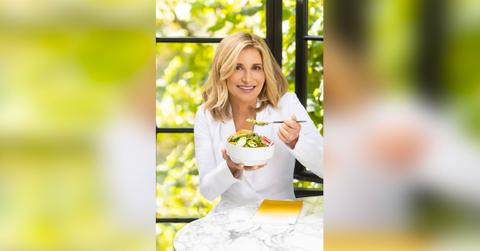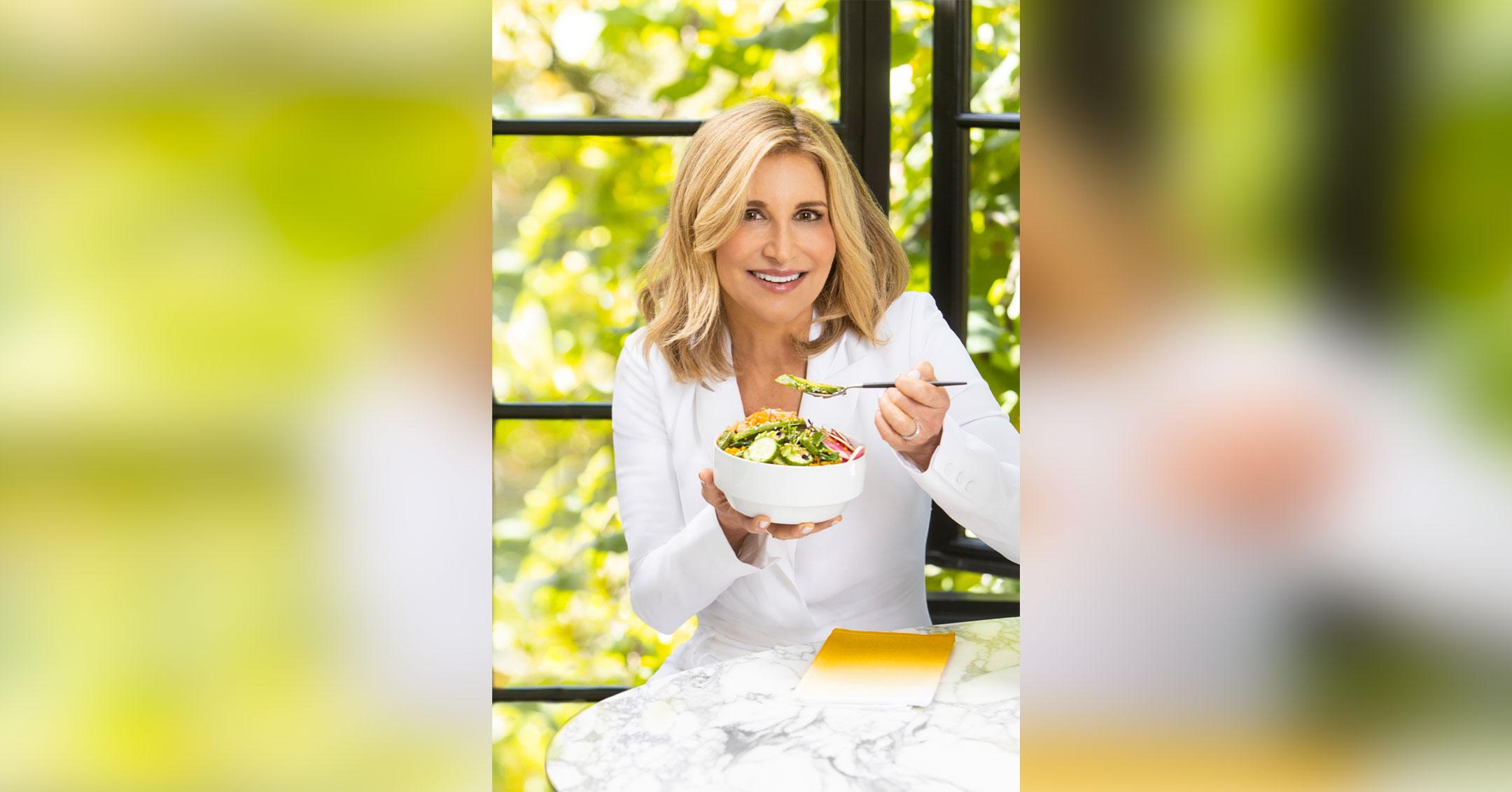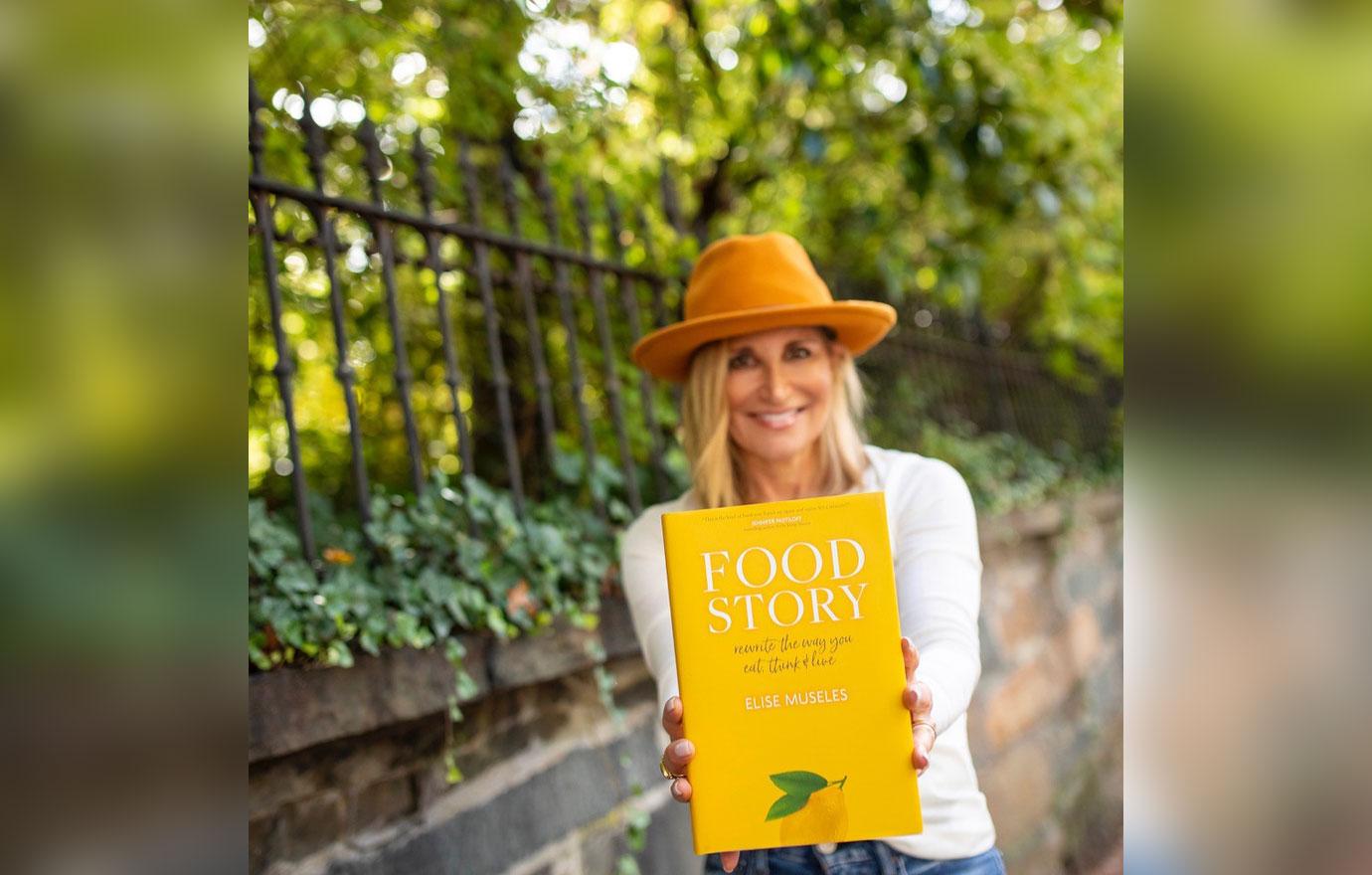
Exclusive: Nutrition Expert Elise Museles Wants Everyone To 'Allow Food To Help You Live Your Life' — 'Not Interfere Or Control It'
March 22 2022, Published 7:45 a.m. ET
It's easy to beat ourselves up if we have a piece of cake or a doughnut, but nutrition expert Elise Museles wants everyone to back away from that kind of thinking.
The certified eating psychology and nutrition expert, who wrote Food Story: Rewrite the Way You Eat, Think and Live, is encouraging people to embrace their messy moments and shift their mindset.
The blonde beauty grew up in L.A., where she was always surrounded by people who were interested in wellness, health and dieting. "I ended up getting certified in holistic nutrition, and I was working with people, asking what is on their plate, and while it was helpful to encourage people to eat more whole, real foods, I felt like this was a missing piece [in the world]," she exclusively tells Morning Honey of her outlook.

"I read a book and it talked about the mind of the eater, and I realized that everything was about the how and why," she adds. "It was such a big awakening to realize that our thoughts are so powerful. I realized this is how I could help people who were struggling."
Museles believes "so many people are conditioned to feel guilty" if we have a slice of pizza or a treat, but she advises others to understand "where that guilt is coming from."
"When you’re trusting your body, it doesn’t mean you have to go all the way to the extreme. It means there is a place for that when you’re celebrating or when you really just want that food and it fulfills this soul nourishment," she explains. "We have these tendencies to categorize food as good or bad, and I always try to encourage people to say it’s food. Sometimes you want to eat your grandmother’s casserole or pie and you’re getting a different kind of nourishment – it’s all the memories, you feel connected to the person and so that is still nourishment. I call it soul nourishment. In a soulful way, so I think there is a place for everything."
Museles shares that people should "reframe" the way we think about eating. "When you start to understand that it’s a story, you can see why you do some of the things that you do, why you make the choices, why you have the thoughts that you do and that puts you in a place of empowerment," she notes. "I feel like that is the first step for people but also to realize that it’s constantly evolving."

The expert also wants people to stop eating when they're doing work or in front of a television. "I really encourage people to try and just eat — and that doesn’t mean every single meal but try it a couple of times and see if you notice the difference," she says. "That is when you’re going to be more tuned into what makes you feel good, what is satisfying, etc. Maybe you’re eating the same sandwich and when you actually get quiet and eat your sandwich, you’re like, 'I don’t even like this sandwich anymore,' or that is why I kind of get bloated."
Museles' book also touches upon the concept of "Food Noise," which is when you get anxious about eating certain foods and why it can be harmful. "It really starts with awareness because it’s so present that we don’t always realize that we’re hearing it," she shares. "The first step is acknowledging that Food Noise exists, where it exists in your life and do that inventory and then find a way to keep the curiosity — write out what it is and you can reduce it. Acknowledge that is Food Noise and you can listen."
"I think for so many of us struggle with our inner dialogue," she admits as to why her method works. "We don’t even realize it and so when you shift the inner narrative and when you can feel you’re the author of your story, you get to learn and get to know something is good for you."
"I would just encourage people to not feel alone and nothing is wrong with them; we all are inundated with messages all of the time," she states. "I always encourage people to write out some themes or some part of their story because that will help, and if they’re comfortable having conversations and sharing with their friends or family members so that it doesn’t feel so taboo. We have gotten a lot better about mental health and their struggles, and I think we should be doing the same thing with food so we can change the collective conversation."

"Allow food to help you live your life, not interfere or control it. It’s our friend and sometimes we forget that!" she concludes.
For more information on Museles, click here.
